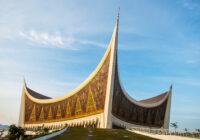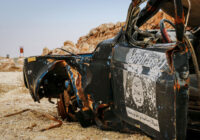Pakistan’s focus on external enemies complicates efforts to reduce political violence, ease inter-communal strains and facilitate the easing of tensions with neighboring countries.
In August, Pakistan’s military commanders gathered to assess the impact of the massive bombing in Quetta that killed at least 70 people and wiped out a generation of lawyers in the province of Baluchistan. They believed there was a sinister foreign-inspired plot that aimed to thwart their effort to root out political violence. The commanders’ analysis strokes with their selective military campaign that targets specific groups like the Pakistani Taliban and the Sunni Muslim Lashkar-e-Jhangvi.
The commanders failed, however, to acknowledge the real lesson of Quetta: Decades of Pakistani military and intelligence support underwritten by funding from quarters in Saudi Arabia for sectarian and ultra-conservative groups in Pakistan that has divided the country almost irreversibly. Generations of religious students have their critical faculties stymied by rote learning and curricula dominated by memorization of exclusionary beliefs and prejudice, resulting in bigotry and misogyny woven into the fabric of Pakistani society.
The Domestic Challenge: Too Much Money
“The enemy within is not a fringe … Large sections of society sympathize with these groups. They fund them, directly and indirectly,” Pakistani columnist Ejaz Haider wrote in a recent commentary. “They provide them recruits. They reject the Constitution and the system. They don’t just live in the ‘bad lands’ but could be our neighbours. The forces have not only to operate in areas in the periphery, along the Pakistan-Afghanistan border, but have also to operate in the cities where hundreds, perhaps thousands form sleeper cells, awaiting orders or planning to strike.”
The military campaign against Lashkar-e-Jhangvi, whose leadership has largely been wiped out in encounters with Pakistani security forces, is a case in point. Lashkar-e-Jhangvi is closely tied to a banned anti-Shia and anti-Ahmadi group called Sipah-e-Sabaha, which continues to operate openly with government support under a succession of different names.
Sipah leaders, in a rare set of lengthy interviews, have little compunction about detailing their close ties to Pakistani state institutions and Saudi Arabia. They are also happy to discuss the fact that both Pakistan and Saudi Arabia are pushing them to repackage their sectarian policies in a public relations effort rather than a fundamental shift that would steer Pakistan toward a more tolerant, inclusive society.
“The Saudis sent huge amounts often through Pakistani tycoons who had a long-standing presence in Saudi Arabia as well as operations in the UK and Canada and maintained close relations with the Al Saud family and the Saudi business community. One of them gave 100 million rupees a year. We had so much money, it didn’t matter what things cost,” said a co-founder of Sipah.
“Some Things are Natural”
Sipah leader Ahmad Ludhyvani, a meticulously dressed Muslim scholar, speaking in his headquarters protected by Pakistani security forces in the city of Jhang, noted that Sipah and Saudi Arabia both opposed Shia Muslim proselytization even if Sipah served Pakistani rather than Saudi national interests.
“Some things are natural. It’s like when two Pakistanis meet abroad or someone from Jhang meets another person from Jhang in Karachi. It’s natural to be closest to the people with whom we have similarities … We are the biggest anti-Shia movement in Pakistan. We don’t see Saudi Arabia interfering in Pakistan,” Ludhyvani said over a lunch of chicken, vegetables and rice.
The soft-spoken politician defended his group’s efforts in parliament to get a law passed that would uphold the dignity of the Prophet Muhammad and his companions. The law would effectively serve as a stepping stone for the institutionalization of anti-Shia sentiment, much like a Saudi-inspired Pakistani constitutional amendment in 1974 that declared Ahmadis non-Muslim. As a result, all applicants for a Pakistani passport are forced to sign an anti-Ahmadi oath.
Showing Off High-level Support
Sipah officials said a Pakistani cleric resident in Mecca, Saudi Arabia, who heads the international arm of Aalmi Majlis Tahaffuz Khatm-e-Nubuwwat (AMTKN)—a militant, anti-Ahmadi, Pakistan-based group closely affiliated with Sipah—acts as a major fundraiser for the group.
Sipah put Pakistani and Saudi support on public display when, in 2015, it hosted a dinner in Islamabad’s prestigious Marriott Hotel for Abdallah bin Abdel Mohsen al-Turki, a former Saudi religious affairs minister and general secretary of the Muslim World League—a major Saudi vehicle for the funding of ultra-conservative and militant groups. Hundreds of guests, including Pakistani ministers and religious leaders designated as terrorists by the United States, attended the event at the expense of the Saudi Embassy in the Pakistani capital.
 Subscribe to Fair Observer for $10 a month and we will gift you our e-publications and invite you to inspiring events.
Subscribe to Fair Observer for $10 a month and we will gift you our e-publications and invite you to inspiring events.
The corrosive impact of such support for groups preaching intolerance and sectarian hatred is demonstrated in another disturbing trend in Pakistan. This is the spike in honor killings that mirrors a jump in lethal attacks on artists, writers and journalists. The aim is to maintain subjugation of women, ensure the dominance of religious rather than secular education, and undermine traditional as well as contemporary popular culture.
It is also mirrored in controversy over the Council of Islamic Ideology—whose offices are ironically located on Islamabad’s Ataturk Avenue—which was created to ensure that Pakistani legislation complies with Islamic law. The council has condemned co-education in a country whose non-religious public education system fails to impose mandatory school attendance and produces uncritical minds similar to those emerging from thousands of madrasas run by ultra-conservatives and those advocating jihadist thinking.
In 2014, the council declared that a man did not need his wife’s consent to marry a second, third or fourth wife, and that DNA of a rape victim did not constitute as conclusive evidence. This year, it defended the right of a husband to “lightly beat” his wife. It also forced the withdrawal of a proposal to ban child marriages, declaring the draft bill un-Islamic and blasphemous.
The continued official acquiescence and open support for intolerance, misogyny and sectarianism calls into question the sincerity of government and military efforts to curb without exception the intolerance and political violence in Pakistan. The result is a country whose social fabric and tradition of tolerance are being fundamentally altered in ways that could take a generation to reverse.
*[This article was originally published by the S. Rajaratnam School of International Studies, a partner institution of Fair Observer.]
The views expressed in this article are the author’s own and do not necessarily reflect Fair Observer’s editorial policy.
Photo Credit: PPI-Images
 We bring you perspectives from around the world. Help us to inform and educate. Your donation is tax-deductible. Join over 400 people to become a donor or you could choose to be a sponsor.
We bring you perspectives from around the world. Help us to inform and educate. Your donation is tax-deductible. Join over 400 people to become a donor or you could choose to be a sponsor.
Support Fair Observer
We rely on your support for our independence, diversity and quality.
For more than 10 years, Fair Observer has been free, fair and independent. No billionaire owns us, no advertisers control us. We are a reader-supported nonprofit. Unlike many other publications, we keep our content free for readers regardless of where they live or whether they can afford to pay. We have no paywalls and no ads.
In the post-truth era of fake news, echo chambers and filter bubbles, we publish a plurality of perspectives from around the world. Anyone can publish with us, but everyone goes through a rigorous editorial process. So, you get fact-checked, well-reasoned content instead of noise.
We publish 2,500+ voices from 90+ countries. We also conduct education and training programs
on subjects ranging from digital media and journalism to writing and critical thinking. This
doesn’t come cheap. Servers, editors, trainers and web developers cost
money.
Please consider supporting us on a regular basis as a recurring donor or a
sustaining member.
Will you support FO’s journalism?
We rely on your support for our independence, diversity and quality.






